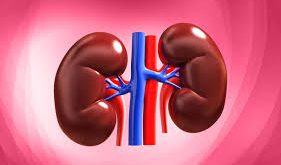Every year, on October 10, the world observes World Mental Health Day. We talk about self-care and balance, yet rarely consider what’s on our plates. As journalist Palki Sharma noted, “We’ve made stress fashionable and food mechanical. It’s no wonder our minds are tired before our bodies are.”
The fats we eat can either strengthen our minds or quietly weaken them. According to the World Health Organization (2023), over one in four people worldwide experience mental health disorders and nutrition remains one of the most overlooked yet modifiable factors.
The Brain That Runs on Fat
Nearly 60% of the brain is fat, forming neuron membranes that allow messages to travel smoothly. Without healthy fats, thinking slows, focus fades, and emotional balance suffers.
Omega-3 and monounsaturated fats from fish, nuts, seeds, olive oil and palm oil nourish neurons and reduce inflammation, while trans fats and processed oils disrupt neural communication. Olive oil, rich in monounsaturated fats like oleic acid and protective polyphenols, supports blood flow to the brain and helps combat oxidative stress, thereby lowering the risk of neurodegenerative diseases such as dementia. Palm oil, a balanced mix of saturated, monounsaturated and polyunsaturated fats and another good source of oleic acid and Vitamin E tocotrienols, has shown anti-oxidant and neuroprotective effects in several studies. The Journal of the American College of Nutrition highlights the importance of palm oil-derived natural Vitamin E alpha-tocotrienol in supporting brain health and protecting against disease.Animal and human studies suggest that the tocotrienols in palm oil may help protect the delicate polyunsaturated fats in the brain, slow dementia progression, reduce the risk of stroke, and prevent the growth of brain lesions.
A Neuron study found that just four days of junk food can impair the hippocampus, the brain’s memory hub causing fatigue, irritability, and “brain fog.” Humans experience similar effects after a week of fast food. It’s not weakness, it’s chemistry.
When Diets Damage the Mind
Mental decline isn’t caused only by overeating. Under-eating can be equally harmful. A BMJ Nutrition (2021) study of 28,000 adults found that calorie-restricted diets increased depressive symptoms, especially in men and overweight individuals.
The brain needs glucose and healthy fats to produce neurotransmitters like serotonin and dopamine, which regulate mood and motivation. Restrictive diets reduce tryptophan, the amino acid for serotonin, leading to irritability, anxiety, and poor focus. Extreme low-fat diets trigger stress hormones and cognitive dullness-a biological response, not a lack of willpower.
Mediterranean Wisdom and Indian Tradition
The Mediterranean diet-rich in olive oil, fish, nuts, and vegetables is a gold standard for mental well-being. Studies show that even 10 weeks on this diet improves cognition, memory, and stress resilience.
Traditional Indian diets similarly valued brain-friendly fats. Mustard oil, coconut, ghee, and seeds were staples. Ghee, rich in butyrate, nourishes gut bacteria that communicate with the brain through the vagus nerve, enhancing mood and focus. Turmeric’s curcumin protects neurons from oxidative stress, reducing mental fatigue and anxiety.
A 2020 ICMR report found that communities following traditional diets had 25–30% lower fatigue and anxiety than those consuming processed foods. Modern diets, however, have skewed the omega-6 to omega-3 ratio from 2:1 to nearly 20:1, increasing inflammation and emotional instability.
The Gut–Brain Connection
The gut is our “second brain”-about 90% of serotonin is produced there, directly influencing mood, energy, and focus.
Yogurt, fermented foods, and green tea improve gut bacteria diversity, supporting stress regulation and sleep. In contrast, ultra-processed foods with artificial sweeteners disrupt the microbiome. A JAMA Network Open study found that consuming nine or more servings daily increases depression risk by 49%. These foods spike blood sugar, cause inflammation, and destabilize mood.
Fats, Focus, and Stress Recovery
Mental resilience is the ability to recover from stress. Chronic stress floods the body with cortisol, the survival hormone. Omega-3 fats regulate cortisol and protect the hippocampus, making the brain more flexible and adaptable.
A Stanford University pilot study found that patients with severe mental illness improved focus and energy on high-omega diets. Healthy fats don’t just fuel thought-they shield it.
Hydration, Moderation, and Mindfulness
The brain is 75% water; even mild dehydration increases fatigue and irritability. Studies show that improving diet and hydration for 2–4 weeks sharpens thinking and sleep, while long-term balanced diets may slow neurodegenerative diseases like Alzheimer’s and Parkinson’s.
Mindful eating-slowing down, savoring food, and eating consciously-further enhances nutrition’s effects. As one India Today columnist noted, “Your brain doesn’t know calories; it knows nourishment.”
A Social and Emotional Equation
Food choices are shaped by stress, culture, and convenience. People often eat more when distracted-by TV, music, or company-because the brain misses satiety signals. Anxiety also drives emotional eating as a coping mechanism.
As Palki Sharma said, “We reach for our phones, not our forks; we feed distraction, not the body.” Resilience isn’t just mental exercise-it’s about relearning how to nourish ourselves.
Conclusion: Feeding the Calm
Both science and tradition agree-good fats build good minds. They reduce inflammation, stabilize mood and energy, protect neurons, and support clear thinking under stress.
This World Mental Health Day, resilience may begin not in therapy, but in the kitchen-with a spoon of ghee, a handful of walnuts, or a drizzle of olive oil. Behind every calm, focused mind lies a well-fed brain, and within every good fat, the chemistry of calm.
Dr. Rachna Khanna Singh is an eminent mental health expert, TedX speaker and Author
 Newspatrolling.com News cum Content Syndication Portal Online
Newspatrolling.com News cum Content Syndication Portal Online







